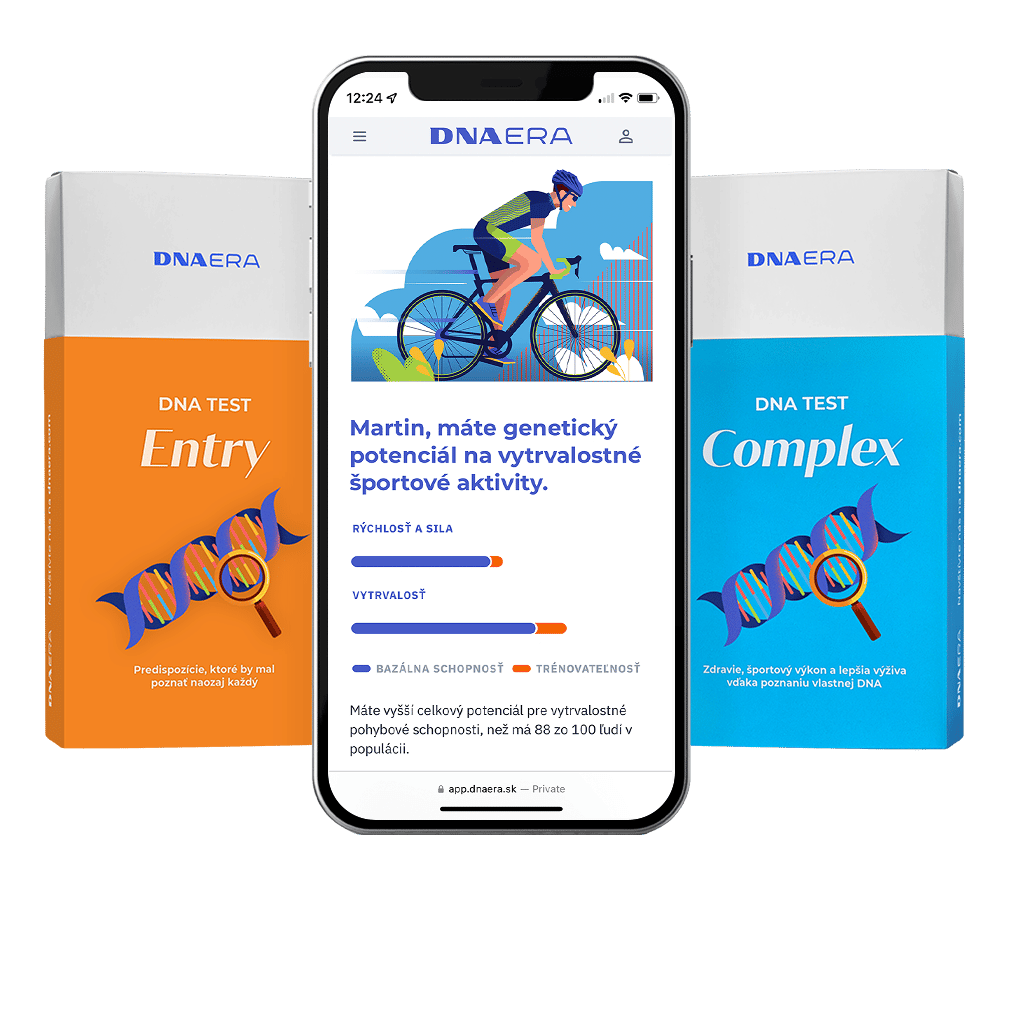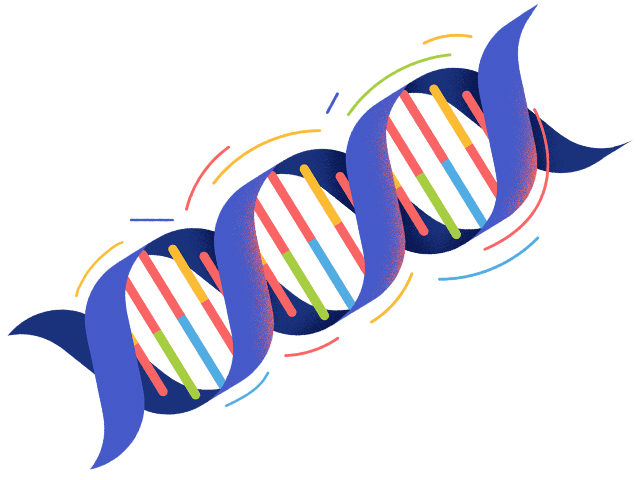Nikola graduated in genetics at the Faculty of Science of Comenius University in Bratislava. Her mission is to translate the latest knowledge in the field of genetics into understandable language so that people can easily understand it and use it in their daily lives. The goal of her work is to help people better understand their genetic predispositions and to show them how this information can contribute to improving their health.
What can DNA analysis help you with?
DNA analysis provides you with information about your body that can serve as a guide to better decisions and overall improvement of your lifestyle. Thousands of people already know their genetic predispositions and improve their behavior based on the results of DNA analysis. How? We will show you with a few short examples.
DNA analysis as a tool for improving your lifestyle
Genes are only part of the story. Knowing them can guide you to the right decisions in various everyday situations. Your lifestyle can greatly influence your health, which should be a priority for everyone. For many, DNA analysis was the first step.
In addition to the result itself, for each monitored characteristic, we also provide an overview of other risk factors, focusing mainly on those that can be influenced. Let’s imagine, for example, that a client finds a susceptibility to certain cardiovascular diseases in the results. Then he reads about various influenceable risk factors, including smoking. Smokers have up to twice the risk of ischemic heart disease, which can lead to myocardial infarction. It is this kind of information that can motivate them to a better lifestyle.
A large meta-analysis of the impact of direct genetic testing showed that up to 19% of smokers quit smoking after undergoing a DNA test.
Important note: Although the test includes several predispositions to diseases, it should be remembered that the result does not diagnose a disease in any way. The test is not a substitute for medical care, and all health-related decisions should be consulted with a doctor.
More exercise that suits your body
Motivation is often the main reason why many people do not exercise. But what if you learned that your sports potential is higher than that of 97 out of 100 people in the population in which you live? You can also find out such information about yourself from our DNA analysis.
The sports profile is one of the most interesting results. When determining it, we monitor more than 50 polymorphisms that affect to varying degrees whether you are more of an endurance or speed-strength type. Knowing your sports profile can help you choose the type of sport that will be more natural for your body and in which you can progress faster. If something comes more naturally to our body, it is also more likely that we will enjoy it and stay active longer. This also applies to children.

Do you go to the gym with a friend who, with the same effort, grows muscles faster than you? Maybe the test will tell you that you simply do not have the predisposition for it. And that is okay. The test will help you understand your body better and does not mean that your efforts are in vain – it may just take you a little longer. We are all unique and we should focus mainly on our own progress.
Knowing your sporting potential will make it easier for you to choose a sport that your body will find easier to handle and in which you will progress faster.
What about diet and genetics?
Genetics affect our diet in various ways. From what flavors we prefer to how we can metabolize different food components.
Did you know that genes affect whether you can perceive certain bitter tastes? Or that genetics can influence whether you like fish, up to 70-80%? How much do you crave sweets? Why do some people blush after drinking alcohol? How quickly can you metabolize caffeine?

What about intolerances? Mutations in various genes can make us more susceptible to developing, for example, lactose or histamine intolerance. Warning: the presence of these mutations does not automatically mean that you will develop an intolerance, and it is not recommended to omit food components without a medical diagnosis.
How do you react to stressful situations and are you more of a morning person or an evening person?
Stress is the body’s natural response to a threat, which has allowed humans and other mammals to react quickly to life-threatening situations. There are several types of stress response, each of which has a certain evolutionary advantage.
The COMT gene version has been shown to influence whether you have a fight or flight response. The fight response provides a certain advantage in stressful situations. On the other hand, it has been shown that people with a more typical flight response may have an advantage in complex environments where memory skills and attention are important.

Why do some people work better in the morning and others in the evening? The so-called chronotype, which is up to half influenced by our genes, contributes to this. Such self-knowledge can help us understand ourselves and improve our performance.
- Tags


